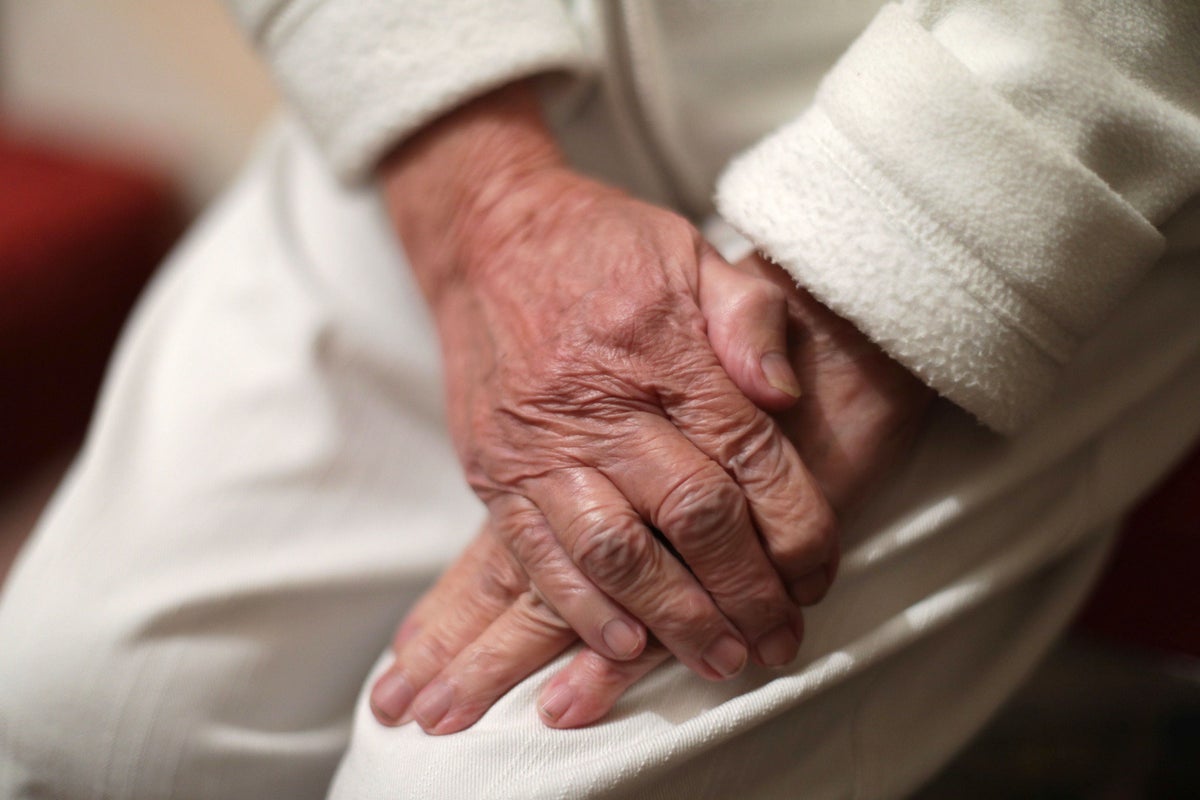
Experts have devised a 12 step checklist they say people can use to reduce the risk of developing dementia.
The vast majority of people are not doing enough to ward off dementia in later life, according to Alzheimer’s Research UK.
The charity said it hoped to empower people to make choices to help reduce the risk of them developing the neurodegenerative disorder, which it referred to as the “most feared consequence of ageing”.
Professor Jonathan Schott, chief medical officer at Alzheimer’s Research UK, said that only 30 per cent of people know that there is something that they can do to individually reduce their risks
“There are some people who are (genetically) destined to develop dementia, but we know now that up to 40 per cent of worldwide dementia risk is potentially modifiable,” he said.
“It’s vital that we do all that we can, as individuals and society, to reduce our risk.”
Steps for keeping good brain health include looking after hearing, engaging in daily challenges to keep the brain active, socialising, keeping fit and eating a healthy diet.
A separate study has also shown that continuing education in younger life, avoiding traumatic head injury and reducing exposure to air pollution can also help reduce a person’s risk.
The new survey, conducted by YouGov on behalf of the charity, found that people are falling short in the steps they can perform themselves to reduce their risk.
The poll of 2,200 UK adults found that 35 per cent of people said they have had concerns about their hearing, but more than half of those (59 per cent) reported that they have not done anything about it.
Previous studies have found that people with hearing loss had a lower risk of mild cognitive impairment compared to people who do not tackle their hearing problems.
In addition, the survey also found that only 31 per cent of adults said they get at least seven hours of quality sleep each night.
Just over a quarter (27 per cent) said they do activities to challenge their brain every day and only 30 per cent said they meet physical activity guidelines each week.
However the majority of respondents said that they speak to, or meet, friends, family or colleagues a number of times each week and most said they had recently had their blood pressure checked.
People of any age are encouraged to use the new Think Brain Health Check-In tool, though it is primarily aimed at people in their 40s and 50s.
The tool is based around a 12-step checklist, the contents of which is listed below:
- Getting at least seven hours of sleep a night
- Looking after mental well-being
- Staying socially active
- Looking after your hearing
- Eating a balanced diet
- Staying physically active
- Quitting smoking
- Drinking responsibly
- Keeping a healthy level of cholesterol
- Maintaining healthy blood pressure
- Managing diabetes as well as possible
Prof Schott added: “Dementia is now the most feared consequence of ageing so people are wanting to know what they can do about their risk.
“I think that it’s empowering to individuals to know that there are some things that they can do.”
Academics have also called for brain health to be included as part of the NHS mid-life MOT – also known as the NHS Health Check – after a survey conducted on behalf of the Alzheimer’s Research UK found that just 2 per cent of adults are doing their utmost to maintain a healthy brain.
Dr Charles Marshall, clinical senior lecturer in dementia at Queen Mary University of London, called for brain health to be included in the NHS Health Check.
“I think what we need to do is think about combining a sort of education approach where we teach people about what they can do to keep their brains healthy with also improved early detection and diagnosis so that we can give people personalised interventions as early as possible,” he said.
“One example of this might be an updated NHS health check that includes a major brain health focus that can identify when people have these risk factors but also something where we can identify early warning signs of dementia.”







